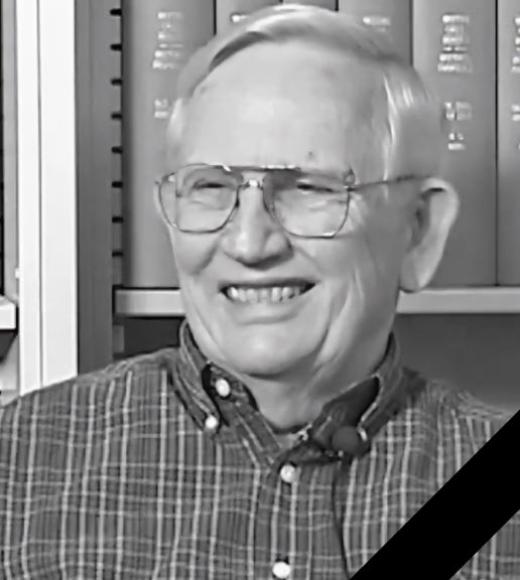
Position Title
In Memoriam
Professor Emeritus
1929-2019
JAMES LYONS
Birth: 1929, Livermore, California
Death: November 9, 2019, Davis, California
Education
- B.S., Agricultural Economics, University of California, Berkeley, 1951
- M.S., Plant Physiology, University of California, Davis
- Ph.D., Plant Physiology, University of California, Davis
Military Service
- Drafted into the U.S. Army during the Korean War; served at Fort Lewis, Washington, 1950s
Employment
- Field Assistant, UC Cooperative Extension, Stanislaus County, 1950s
- Assistant Professor to Department Chair, Vegetable Crops, UC Riverside, 1962–1970
- University of California, Davis, 1970-1991
- Chair, Department of Vegetable Crops, 1970–1979
- Associate Dean, Plant Sciences and Pest Management, 1973–1979
- UC Statewide Integrated Pest Management Program, 1979–1987 (Founding Director)
- Director, UC ANR Center for Pest Management Research; Assistant Director, UC Sustainable Agriculture Research and Education Program; Assistant Director, Agricultural Experiment Station, 1980s
Honors, Awards, and Professional Societies
- Fellow, California Academy of Sciences
- Award of Distinction, UC Davis College of Agricultural and Environmental Sciences (2001)
- Campbell Soup Prize for vegetable research
Research Contributions and Impact
Lyons’ early research at UC Davis and UC Riverside addressed ethylene and fruit ripening and the physiology of chilling injury in warm-season crops, providing foundational insight into postharvest biology. His collaboration with John Raison on membrane lipid composition and low-temperature thresholds gained international recognition, with their 1970s paper now cited hundreds of times as a classic in plant physiology.
As chair of Vegetable Crops at UC Davis, he led the department during major funding shifts, persuading California’s agricultural industries to organize marketing orders to fund commodity research. This innovative model sustained applied research in tomatoes, lettuce, carrots, and other crops despite waning state support.
Lyons’ most significant impact came as the founding director of the UC Statewide Integrated Pest Management (IPM) Program. Under his leadership, the program established regionally based IPM advisors, an education and publications unit, a technical advisory committee, and the UC IPM computer system. His ability to unite researchers, farm advisors, and industry made the UC IPM Program a national model for science-based pest management, reducing reliance on toxic pesticides while sustaining crop productivity.
Publications and Scholarly Leadership
Lyons published influential work on chilling injury, membrane biochemistry, and postharvest physiology. His administrative reports and program histories, including A History of the University of California Statewide IPM Program (2003), documented the development of interdisciplinary research and extension in California agriculture.
Teaching and Mentorship
At UC Riverside, Lyons taught vegetable production and mentored students while building his research program. At UC Davis, his focus shifted to mentoring young faculty and promoting interdisciplinary collaboration. Many of the scientists he recruited into plant sciences and pest management went on to become national leaders in biotechnology, agronomy, and horticulture.
Collaboration and Community
Lyons excelled at fostering collaboration across disciplines and institutions. He initiated the UC Plant Growth Laboratory, an interdepartmental facility that supports biotechnology research, and championed cooperation among experiment station scientists, extension advisors, and commodity groups. His quiet but firm leadership style emphasized teamwork, flexibility, and shared credit.
Legacy
James M. Lyons is remembered as a pioneering postharvest physiologist, a visionary administrator, and the architect of California’s Statewide IPM Program. His research on chilling injury reshaped understanding of plant membranes, while his leadership in commodity-funded research and IPM established enduring models of collaboration between universities, growers, and policymakers. His career left a lasting imprint on California agriculture, UC Davis, and the global plant sciences community.
References
For additional tributes, interviews, and biographies, see the following resources:
